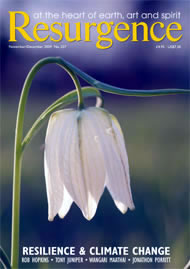In absolute contrast to the recent terrible events resulting from the Peruvian government’s determination to develop its petroleum reserves in the heart of the Amazon – when as many as 100 Indigenous people and their supporters may have been killed in clashes with police and army – its neighbouring country Ecuador has offered to keep oil in the ground for perpetuity and so protect its rainforests, biodiversity and Indigenous peoples.
Ecuador’s proposal for ‘avoided oil extraction’ is focused on the Yasuni National Park, which covers some 928,000 hectares and has extraordinary biodiversity, with one hectare of rainforest harbouring an average 655 distinct species of tree and bush – a number greater than the total number of native tree species in the entire United States and Canada. Meanwhile, the Ecuadorian government will continue to respect the desire of Indigenous peoples to live in isolation in the park.
Some 20% of Ecuador’s known recoverable petroleum reserves are to be found in the Yasuni National Park and therefore the country is prepared to commit itself to leaving 846 million barrels of heavy oil in the ground. And if, as is likely, more oil were discovered, that too would be subject to the same jurisdiction, thereby preventing its exploitation.
Were the 846 million barrels of oil to be exploited – a daily production of some 107,000 barrels for thirteen years, followed by dwindling production over the next twelve years – that consumption would result in the emission of 407 million metric tons of carbon dioxide.
In return for leaving the oil untouched, Ecuador has proposed the establishment of a capital fund administered by an international trust fund, with guarantees in the form of Yasuni Guarantee Certificates that the oil will remain underground forever. Ecuador is looking for the fund to have a value equivalent to at least half the earnings the country would receive were it to extract the oil. The present net value of the oil, if exploited would amount to some US$7,000 million, which coincidentally is not far from the value of the carbon offsets as Certified Emission Reductions (CERs) that would result from avoiding greenhouse-gas emissions.
Ecuador’s daring and unprecedented initiative, if supported by the international community, would go much further than simply preventing greenhouse-gas emissions from the consumption of the oil. The capital fund would allow Ecuador to fulfil its aims to a) protect National Parks and native forests over 38% of the national territory; b) carry out reforestation and forestation of 1 million hectares; c) substitute renewable energies for fossil-fuel-based thermo-electric power generation and d) invest in the social agenda of Indigenous peoples. And, of course, the proposal would prevent 407 million metric tons of CO2 from getting into the atmosphere.
The international community via the COP15 United Nations Climate Change Conference in Copenhagen this December must give priority to this kind of ground-breaking initiative – for all our sakes.







